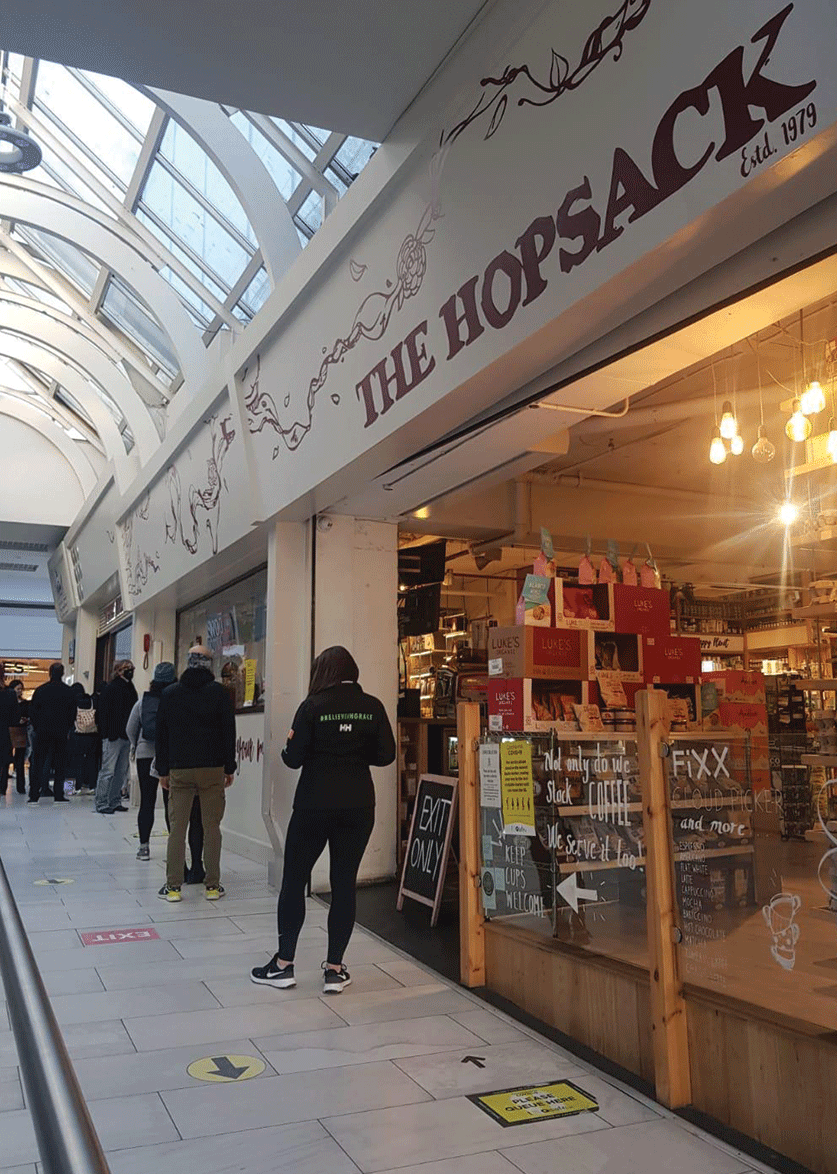Hopsack counter culture

Do you want your store to be mainstream or maverick? Finn Murray expresses a preference.
Haha! What a title for an article, and how appropriate to our weirdo little industry.
Not weirdo in any pejorative way. Just like the Victorian scientist who was pilloried into an early grave by his peers for recommending hand washing to doctors as a way to avoid ‘childbed fever’, a major cause of maternal mortality at the time, our industry has always been full of sensible folk recommending the simple solutions, and we have been routinely worse off for doing so.
But just like Ignaz Semmelweis and his hand washing, the much-lauded quack-busters and mainstream critics haven’t stopped us from pushing forward ‘fringe’ theories like leaky gut, irritable bowel syndrome and homeopathic cures, and exposing myths like the low fat fad. Most of our notions around health have latterly succeeded in gaining mainstream acceptance.
Indeed, as a store we feel like we’ve been put on a different stage since I joined in 2005. My parents [Jimmy and Erica Murray], having kicked things off in 1979 with homemade soup and shelves of pulses and seaweeds driven by macrobiotic concepts, had a much tougher hill to climb to get seen by the masses.
I remember one of my mum’s industry statistics that she picked up from Danny Wells being trotted out to me regularly during the early 2000s: “Less than 5% of passers-by will enter a health food store”. When I think of that it’s mind-blowing how much more awareness of natural health has landed within the public domain, and though that’s a double-edged sword in terms of the increased competition from large grocery chains, it’s also just generally really encouraging in terms of the health of our species and what’s being put on their plates for supper every night.
Honestly though, the idea of becoming ‘mainstream’ doesn’t attract me, it slightly repulses me, and it’s important that I understand why and remind myself of it regularly. With more eyes on us comes more commercial opportunity and that should make us all happy and wealthy etc. But it’s the identity of our store, The Hopsack, which has been carved out as a personality in our local community over the past four decades that needs to remain somewhat enigmatic. And with the brands that we stock being available now across so many more platforms and through nearly every food retail outlet imaginable, the persona of our store is basically the last remaining piece of intellectual property we have going. And it’s precious. Perhaps too precious.
I get very caught up in the minutiae of how we edit the experience for our customers, how our voice comes across in marketing both in store and online, and I’m so lost inside our brand with zero remaining objectivity that I probably give a much harder time to our team, that are trying desperately to understand and echo this etheric and intangible thing, than is fair to them.
Brands that are defiantly iconoclastic will also have immediate appeal for us too, and ones that devote their time to finding their own voice and come from an authentic and original place and aren’t ‘me too-ing’, are ones that we will always find space for on our shelves. Be it with local, artisan foods or cosmetics or remedies from far-flung places, you get a scent for those that are paying lip service to the legitimacy of health food versus those that have it in their DNA.
Both Brexit and the Covid-19 pandemic have hampered our freewheeling ability to access and stock all the amazing products that have come along. We’re still hoping that those two flies in the ointment do disappear, but at this stage though, as is the benefit of being a small ship, we’ve reorganised and adapted in terms of our purchasing (more local, or direct from mainland Europe) and selling (more online, more local deliveries, tailoring our service to suit weekly grocery needs).
As a kid I wasn’t overly enthusiastic about my dad’s eccentric approach to work and life. At the school gates I just wanted to fit in, and I didn’t understand the value in having this shop that didn’t conform to what to me seemed to be cool or on trend.
Little did I know. Now it’s the ultimate attraction to me (and I think to most of our customers) that we, as part of an ever more homogenous urban environment, represent a unique space and alternative experience, and offer a touch of authenticity.
At a time when Amazon is putting zero contact retail stores onto the high street, the community resource, personality and essential humanity of health food stores is a more crucial essential service than we may ever have understood it to be.
Finn Murray is Director of The Hopsack, Dublin
Read more articles from our latest issue...